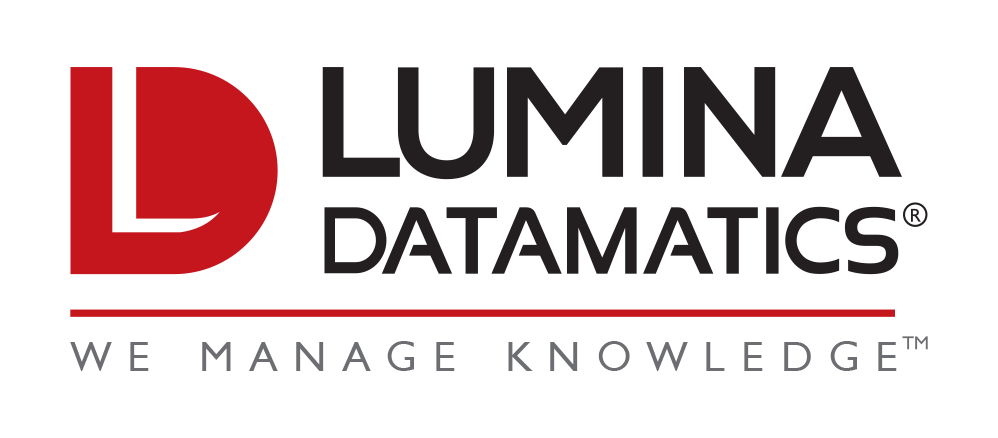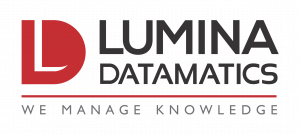“So… you just basically answer emails all day…?”
You might laugh, but this is a common question that I receive after explaining what I do for a job and what a typical day-to-day looks like. After stifling an eye roll, I explain that while yes, answering emails is a substantial part of the job, it’s actually only part of what I do. Truth be told, an experienced project manager in the educational publishing industry wears many hats and holds a variety of responsibilities that may not be obvious to all.
In today’s blog post, I’d like to explain some of the more nuanced value adds – by the way of unexpected roles – that project managers bring to the proverbial table.
-
- Recruiter/Staffer – While we have a wonderful recruitment team at Lumina Datamatics, project managers are often required to find the proper subject matter experts to work on the various jobs that come across their desks. Often, we have trusted experts/contributors we’ve worked with in the past, but we need to find out if they’re available, if they’re comfortable with the project’s time frame, the compensation, the complexity of the work, etc. If they are, then great, the hard part is done. If they’re not able to commit or can’t do the job for the compensation offered, we need to locate appropriate experts/contributors who can not only accomplish the work within the given time frame, but also for the allocated compensation. Finding said experts/authors can be difficult depending on how narrow the publisher’s requested credentials and experience are.
Whether using experts/contributors we’re familiar with or employing new folks, we must staff the project appropriately. This involves sophisticated resource planning from the project manager: determining (realistically) how many experts/authors are needed across a project to meet the schedule, identifying a reasonable load for each of those experts based on their individual circumstances (time commitment, experience, work ethic/historical performance, and more), monitoring progress to ensure everyone remains on track, and making adjustments as needed. As you’d imagine, every project is unique unto itself, so this entire process can prove difficult and often time-consuming. An experienced project manager knows what tasks their trusted experts are best at and where to properly deploy new experts so as to mitigate any potential risks to the overall health of the project.
-
- Relationship Builder – Closely related to the above mentioned “role,” the ability to build quality relationships is another important skill in an experienced PM’s toolbox. Whether working with familiar experts or those completely new to the company, building and maintaining strong interpersonal relationships is crucial. This may go without saying, but project managers are evaluated by how successfully and efficiently they manage their projects. A large piece of a successful project is ensuring that contributors are comfortable, understand expectations, and that they can communicate freely with their PM colleagues. Building a healthy relationship with a contributor can start simply with letting them know they can relay any concerns or questions. Open communication is critical to healthy relationships, so encouraging them to speak their minds and ask meaningful, even challenging questions, can go a long way toward letting them know they’re part of the project; they are a collaborator, not just hired help. And once that level of communication is established, it’s critical that the project manager follow through on their promises to hear the contributor out, explain or discuss issues in more detail, or advocate on their behalf when they raise points that warrant higher level consideration.
- Relationship Builder – Closely related to the above mentioned “role,” the ability to build quality relationships is another important skill in an experienced PM’s toolbox. Whether working with familiar experts or those completely new to the company, building and maintaining strong interpersonal relationships is crucial. This may go without saying, but project managers are evaluated by how successfully and efficiently they manage their projects. A large piece of a successful project is ensuring that contributors are comfortable, understand expectations, and that they can communicate freely with their PM colleagues. Building a healthy relationship with a contributor can start simply with letting them know they can relay any concerns or questions. Open communication is critical to healthy relationships, so encouraging them to speak their minds and ask meaningful, even challenging questions, can go a long way toward letting them know they’re part of the project; they are a collaborator, not just hired help. And once that level of communication is established, it’s critical that the project manager follow through on their promises to hear the contributor out, explain or discuss issues in more detail, or advocate on their behalf when they raise points that warrant higher level consideration.
Similarly, building and maintaining healthy relationships—with both internal colleagues and external companies alike—goes a lot further than one would think and can only serve to benefit a project manager within their career. The more familiar people are with a colleague, the more apt they’ll be to offer a helpful thought, their own valuable time, or sometimes even more support. Also, strong relationships help make difficult conversations (which unfortunately have to happen sometimes) much, much easier. Having that level of comfort will help all parties involved come to an agreement or compromise much more easily when things get dicey.
-
- Accountant/Financial Analyst – Anytime we work on a new project, the first step is conducting a deep analysis of what the job entails: the scope, the type of work required, the type of experts/contributors we’ll need to staff, the market needs/competitive products, the schedule, the subject matter, and more. After getting a proper understanding of these facets, and after all questions have been answered, the project manager needs to create an estimate for the work. Creating the estimate is an extremely important part of the startup of any project. It ensures that both Lumina and the publisher are in agreement as to what it will cost to successfully complete the job.
- Accountant/Financial Analyst – Anytime we work on a new project, the first step is conducting a deep analysis of what the job entails: the scope, the type of work required, the type of experts/contributors we’ll need to staff, the market needs/competitive products, the schedule, the subject matter, and more. After getting a proper understanding of these facets, and after all questions have been answered, the project manager needs to create an estimate for the work. Creating the estimate is an extremely important part of the startup of any project. It ensures that both Lumina and the publisher are in agreement as to what it will cost to successfully complete the job.
While we do have agreed-upon rates for items we typically work on, it’s up to the project manager to comb through the content and analyze how much or how many of a certain type of revision will be required, how long certain tasks will take, whether the experts will be willing to work for the rates available, and in which areas we can save the publisher money. These items and more are factored into creating the estimate.
Beyond the initial estimate creation, a project manager must constantly monitor the ongoing project costs. It’s important they are vigilant about their contributors’ time and effort, whether their estimate was off regarding a certain type of item that maybe needed more work (or less) than others, and whether new requests come in that would require an update to the estimate, i.e., additional cost. This is where those strong relationships come in.
As you can see, a project manager’s responsibilities go well beyond answering email and shepherding documents along. Many of these skills are learned, but the good news is that successful project managers are all allowed to put their own spin on them, as long as it leads toward the successful completion of projects. In a future post, I’ll be continuing this theme and detailing other roles and responsibilities experienced PMs commonly handle.
Do you have an experience you’d like to share with the author or interested in hearing more about Lumina’s project management approach and team? We want to hear from you! Email Lumina to share your thoughts or consider taking the time to read some of our other wonderful Lumina Datamatics blog posts.





0 Comments